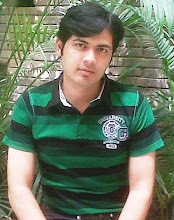 Hi friends,In This Year Many Banks Came With Their PO Exams With Large Number Of Seats Available for Aspirants.So,Here is Some Gyan For PO Aspirants which can be helpful during Interview Procedure.In future,I Came with more number of good questions which may be required in Preparation of Bank Exam or Any Mba College Interview.Till then Enjoy This & Keep Commenting....
Hi friends,In This Year Many Banks Came With Their PO Exams With Large Number Of Seats Available for Aspirants.So,Here is Some Gyan For PO Aspirants which can be helpful during Interview Procedure.In future,I Came with more number of good questions which may be required in Preparation of Bank Exam or Any Mba College Interview.Till then Enjoy This & Keep Commenting.... 

 1. What is a fiscal deficit?
1. What is a fiscal deficit?A deficit in the government budget of a country and represents the excess of expenditure over income. So this is the amount of borrowed funds required by the government to meet its expenditures completely.
India's fiscal deficit widened to Rs. 541.58 billion in April, 2009 as compared to Rs. 329.39 billion rupees in April 2008.
2. What is Black Money ?
Black Money is the unaccounted money concealed from the tax authorities. The black money runs a parallel economy adversely affecting the distribution of wealth & income in the economy.
 The total amount of black money globally is estimated between $2.1 and 2.5 trillion. This is roughly about seven percent of the world’s GDP.
The total amount of black money globally is estimated between $2.1 and 2.5 trillion. This is roughly about seven percent of the world’s GDP.3.What is a Black Market?
A black market is an illegal market, in which............ something is bought and sold outside of official government-sanctioned channels. Black markets tend to arise when a government tries to fix a price without itself providing all of the necessary supply or demand. Black markets in foreign exchange almost always exist when there are exchange controls.
4.What is a blue chip company? Why it is blue color only used in such companies?
A blue chip is concerned with stocks & shares of company, which are well established and whose purchase is considered extremely safe. Due to stable earnings and no extensive liabilities these companies are called blue chip companies.
The term blue chip comes from casinos, where blue chips stand for counters of the highest value. Most blue chip stocks pay regular dividends, even when business is faring worse than usual.
5.What is a direct Tax?
A direct tax is that which is paid directly by someone to taxing authority. Income tax and property tax are examples of direct tax. They are not shifted to somebody else.
6.What is an Indirect Tax?
This type of tax is not paid by someone directly to the authorities and it is actually passed on to the other in the form of increased cost. They are levied on goods and services produced or purchased. Excise tax, Sales tax, VAT are indirect taxes.
7.What are LDCs or Least Developed Countries?
Least Developed Countries (LDCs) are countries which as per United Nations show the lowest indicators of socioeconomic development.
They have lowest Human Development Index ratings of all countries in the world.
A country which has three-year average Gross national Income per capita of less than US $750 is tagged as LDC. a LDC must have an income of $ 900 to escape this tag. Besides if thse countries show human resource weakness based on indicators of nutrition, health, education and adult literacy and also or economic vulnerability based on instability of economy . Currently UN has tagged 49 countries in LDC. India is not an LDC.
This type of tax is not paid by someone directly to the authorities and it is actually passed on to the other in the form of increased cost. They are levied on goods and services produced or purchased. Excise tax, Sales tax, VAT are indirect taxes.
7.What are LDCs or Least Developed Countries?
Least Developed Countries (LDCs) are countries which as per United Nations show the lowest indicators of socioeconomic development.
They have lowest Human Development Index ratings of all countries in the world.
A country which has three-year average Gross national Income per capita of less than US $750 is tagged as LDC. a LDC must have an income of $ 900 to escape this tag. Besides if thse countries show human resource weakness based on indicators of nutrition, health, education and adult literacy and also or economic vulnerability based on instability of economy . Currently UN has tagged 49 countries in LDC. India is not an LDC.
8.What are Middle Income Countries ?
Middle-income countries (MICs) are the 86 countries that fall into the middle-income range set by the Bank's World Development Indicators. They account for just under half of the world's population; are home to one-third of people across the globe living on less than $2 per day; and are found in all six of the Bank's geographical regions. They cover a wide income range, with the highest income MIC having a per capita income 10 times that of the lowest.
9.What is Policy of Laissez Faire?
Laissez Faire is a French term and means no interference. It is a doctrine that states that government generally should not intervene in the marketplace.
10.What is the difference between Monopoly and Monopsony ?In monopsony only one buyer faces many sellers. So this is called Buyer's Monopoly. It is a rare situation in today's economy.
In monopoly one seller faces many buyers. As the only purchaser of a good or service, the "monopsonist" may dictate terms to its suppliers in the same manner that a monopolist controls the market for its buyers.
Source:Bank Today.

1 comments on "Bank Questions for Inteview"
Subscribe in a Reader
Thank you for sharing such a nice information.
MBA Colleges ranking
Post a Comment